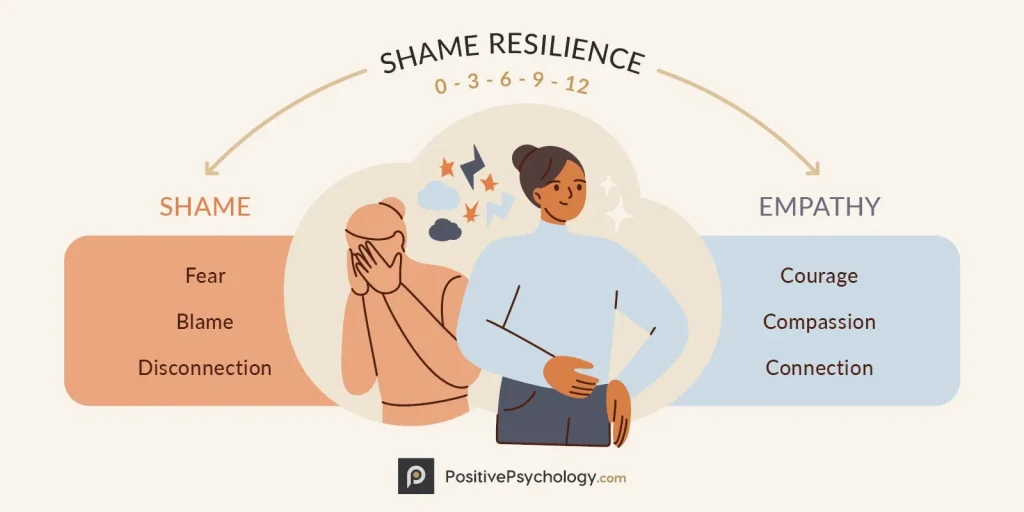Emotional Resilience Overcoming Challenges with Personal Growth Techniques

Unveiling the Power of Emotional Resilience
In today’s fast-paced world, the ability to navigate through challenges requires more than just coping skills; it demands emotional resilience. This key component of personal growth can transform obstacles into opportunities, enabling individuals to bounce back stronger than before. Understanding how to harness emotional resilience fuels a growth mindset, paving the way for self-improvement and lasting success.
The Relevance of Emotional Resilience
Emotional resilience allows individuals to withstand adversity while maintaining a positive outlook. It encourages exploring techniques that challenge limiting beliefs and promote adaptive thinking. With a growth mindset, individuals can view failures as stepping stones towards improvement.
Why Explore This Topic?
As we delve deeper, we will examine the top strategies that foster emotional resilience and contribute to personal growth. Here are the Top 5 techniques you can incorporate into your daily life:
- Practice mindfulness and self-awareness.
- Foster strong social connections.
- Embrace challenges and learn from failures.
- Develop problem-solving skills.
- Engage in self-compassion and positive self-talk.
Ready to discover how these strategies can unlock your potential? Let’s explore the transformative journey toward emotional resilience and the personal growth that follows.
CHECK OUT: Click here to explore more

Top 5: The Importance of Emotional Resilience in Overcoming Challenges: Personal Growth Techniques
In the journey of life, filled with its myriad twists and turns, emotional resilience emerges as a crucial ally. It encompasses our ability to not just withstand stress but to adapt, recover, and ultimately grow from life’s numerous ups and downs. Emotional resilience is not a fixed trait; rather, it is a learned quality that can be developed and strengthened over time. This article delves into the top five personal growth techniques that can enhance emotional resilience, offering valuable insights that encourage a growth-oriented mindset. Let us explore these techniques, from least to most vital, that can prepare you to handle life’s challenges with finesse and fortitude.
5. Embracing Change: The First Step to Resilience
Change is the only constant in life, as the saying goes. However, it often brings discomfort and uncertainty. **Embracing change** is the foundation of building emotional resilience. Acknowledging life’s fluid nature is crucial, as it opens doors to unforeseen opportunities and potential growth. Without embracing change, we remain stuck in familiar but unproductive patterns, hindering our personal development.
Adapting to new situations requires stepping out of our comfort zones, which may initially feel daunting. To do this effectively, consider gradually exposing yourself to unfamiliar experiences. This practice enhances cognitive flexibility, promoting better problem-solving skills.
Tip: Craft a “comfort zone stretching” plan. Set achievable goals that gently push your boundaries, such as trying a new hobby, interacting with new people, or taking on unfamiliar tasks at work. Over time, you will notice an increase in your ability to cope with change, ultimately bolstering your emotional resilience.
4. Emotional Regulation: Mastering Your Feelings
**Emotional regulation** is the art of recognizing, managing, and responding to your emotions constructively. It is a cornerstone of emotional resilience because it allows you to maintain balance when faced with stress, adversity, or emotional upheaval. Instead of being overwhelmed by emotions, mastering this technique enables you to respond thoughtfully rather than impulsively.
There are several strategies to enhance emotional regulation skills:
- **Mindfulness and meditation:** These practices help you become more aware of your emotional state without judgment, allowing for better management.
- **Journaling:** Regularly writing about your thoughts and feelings can help clarify your emotions and provide a healthy outlet for expression.
- **Deep breathing exercises:** Engaging in slow, focused breathing can calm immediate emotional responses and reduce stress levels.
By honing these skills, you achieve greater mental well-being and a perspective that favors growth and improvement.
3. Building a Support Network: You’re Not Alone
**Human connection** plays a significant role in emotional resilience. Establishing and nurturing a supportive network offers emotional availability, shared insights, and encouragement during tough times. A solid support system consists of friends, family, colleagues, or even community groups that resonate with your experiences and challenges. Engaging with these networks fosters emotional solidarity and inclusion, vital components for resilience.
Social bonds not only provide comfort but also encourage the exchange of ideas, learning from others’ perspectives, and building emotional strength.
Action Item: Actively seek community groups, participate in online forums related to your interests, or make time for frequent interactions with friends and family. These bonds create a safety net, offering strength and promoting resilience through shared experiences.
2. Positive Self-Talk: Shifting Your Inner Dialogue
Our inner voice can be our most influential ally or our harshest critic. **Positive self-talk** involves consciously choosing an affirmative and encouraging narrative in our internal dialogues. This practice significantly contributes to a growth mindset, empowering us to view challenges as opportunities rather than threats.
Implementing positive self-talk entails:
- **Identifying and challenging negative thoughts:** Recognize when your inner dialogue turns critical and question its validity.
- **Replacing negativity with affirmations:** Substitute negative statements with positive ones, engaging in self-affirmation.
- **Visualizing success:** Imagining positive outcomes can bolster self-confidence and perseverance.
Fostering a positive inner dialogue enhances emotional resilience, enabling one to embrace challenges with renewed zeal and optimism.
1. Cultivating a Growth Mindset: The Foundation of Resilience
At the heart of emotional resilience lies the concept of a **growth mindset**, a term popularized by psychologist Carol Dweck. This mindset emphasizes the idea that personal abilities and intelligence can be augmented through effort and dedicated practice. Embracing a growth mindset frames challenges as learning opportunities rather than insurmountable barriers.
Adopting a growth mindset involves:
- **Embracing challenges and learning from setbacks:** Understand that mistakes are part of the learning process and not a reflection of inadequacy.
- **Focusing on effort rather than outcomes:** Concentrate on the progress made rather than solely judging by end results.
- **Seeking and utilizing feedback:** Use criticism constructively to facilitate growth and improvement.
Cultivating a growth mindset equips individuals to handle adversity with composure and determination, laying a firm foundation for emotional resilience and continued personal development.
In conclusion, emotional resilience is essential for navigating life’s turbulent waters and can be substantially developed with deliberate practice of these techniques. By embracing change, mastering emotional regulation, building solid support networks, practicing positive self-talk, and cultivating a growth mindset, individuals can rise resiliently above challenges, emerging more capable and ready to tackle future adversities. Each technique complements the others, reinforcing a resilient, growth-ready approach necessary for life’s unpredictable journey.
Resilience is more than just a buzzword; it is a crucial attribute that individuals can nurture for personal growth and overcoming challenges. By developing emotional resilience, individuals can navigate life’s difficulties not only more effectively but also derive constructive lessons from their experiences. Let’s delve into the critical aspects and practicing techniques that underscore the profound importance of emotional resilience in overcoming hurdles.Emotional self-regulation, a key component of resilience, allows individuals to manage their emotions in the face of adversity. This skill is vital during stressful situations, where impulsive reactions could lead to detrimental outcomes. Techniques like mindfulness meditation and reflective journaling provide avenues for individuals to process their feelings and cultivate a sense of calm. Mindfulness practices enhance one’s ability to stay present, helping to reduce anxiety and increase clarity in thought during trying times.Furthermore, having a strong support system amplifies one’s emotional resilience. Positive relationships provide individuals with encouragement and perspective when confronting challenges. Engaging in community support groups or seeking mentorship can foster connections that not only offer emotional backing but also share transformative strategies proven effective by others who have navigated similar situations. Social support can serve as a buffer against stress, allowing individuals to feel seen and heard while they work through their challenges.Another crucial aspect is the ability to adapt to change, which is inherently linked to emotional resilience. Individuals who embrace change as a part of life are better equipped to recover from setbacks. Learning to adjust expectations and maintaining a flexible mindset enables one to confront unexpected challenges with agility. Techniques such as cognitive restructuring can play a significant role here; by reframing negative thought patterns into positive or transformative approaches, individuals can shift their narratives about failure and obstacles.It’s also essential to highlight the practice of setting realistic goals as a building block for resilience. Goal-setting encourages individuals to focus on achievable milestones which can provide direction and motivation. By breaking down larger challenges into smaller, manageable tasks, people are more likely to experience small wins that can boost their confidence. This incremental approach not only fosters a sense of accomplishment but also conditions the mind to view challenges as opportunities for growth.Lastly, cultivating a growth mindset can dramatically influence one’s resilient capabilities. This concept, popularized by psychologist Carol Dweck, posits that individuals who believe in their ability to grow and learn from experiences are more likely to thrive. By embracing failures and viewing them as essential elements of the learning curve, individuals prepare themselves to tackle future obstacles with renewed strength.In sum, the journey towards emotional resilience is laden with various techniques and practices that foster personal growth and the ability to surmount life’s challenges. Through self-regulation, building supportive networks, adapting to change, setting attainable goals, and cultivating a growth mindset, individuals can arm themselves with the tools necessary to navigate life’s storms while emerging stronger and more resilient.
LEARN MORE: This related article may interest you
Frequently Asked Questions about Emotional Resilience and Personal Growth
What is emotional resilience and why is it important?
Emotional resilience is the ability to adapt to stressful situations or crises. It plays a crucial role in how we handle adversity and maintain mental health. By building resilience, individuals can improve their capacity to recover from setbacks and handle stress without overwhelming distress. This skill is particularly important in today’s rapidly changing environment, where individuals face multiple challenges that can impact their emotional well-being.
How can someone develop emotional resilience?
Developing emotional resilience involves several strategies, including practicing mindfulness, maintaining a supportive social network, and staying physically active. Additionally, cultivating a positive outlook can significantly bolster resilience. Techniques such as setting realistic goals, taking decisive actions rather than detaching from problems, and finding purpose in life are also beneficial. These methods contribute to building a robust mental framework that strengthens one’s ability to navigate challenges effectively.
Are there specific exercises that can enhance personal growth through resilience?
Yes, there are many exercises that can enhance personal growth through resilience. Some of these include journaling to process and reflect on emotions, practicing gratitude to foster a positive mindset, and engaging in physical activities like yoga or tai chi. These practices help individuals improve self-awareness and emotional regulation. Attending workshops focused on stress management and resilience training can also offer invaluable tools for personal enhancement.
Can resilience affect one’s professional life and career development?
Indeed, resilience can have a profound impact on professional life and career development. Resilient individuals are often better equipped to handle work-related stress, adapt to organizational changes, and bounce back from career setbacks. This ability is highly valued in the workplace, leading to enhanced job performance and career advancement opportunities. It is not uncommon for employers to seek employees who demonstrate strong resilience as part of their skill set, especially in high-pressure industries.
What role does self-care play in building emotional resilience?
Self-care is an integral component of building emotional resilience. By prioritizing physical, mental, and emotional health, individuals can sustain the energy needed to confront and overcome life’s challenges. Practicing self-care can take many forms, from ensuring adequate rest and nutrition to seeking therapeutic support when needed. By nurturing themselves, individuals create a foundation for enhanced resilience, enabling them to recover more swiftly from stress and adversity.
SEE ALSO: Click here to read another article
Conclusion
In navigating the complexities of modern life, the significance of emotional resilience cannot be overstated. This ability to adapt and recover from adversity is a critical component in not only overcoming challenges but also in fostering personal growth. Throughout the article, we have delved into various growth mindset techniques that can enhance one’s emotional resilience, paving the way for a more fulfilling and balanced life.
First and foremost, cultivating self-awareness and mindfulness helps in recognizing and managing emotions effectively. Identifying stressors and triggers early on allows individuals to face obstacles with a clear and calm mind. Secondly, embracing a growth mindset encourages the viewing of failures and setbacks as opportunities for learning and improvement. This perspective fosters patience and optimism, even amidst difficulties.
Moreover, building a support system consisting of family, friends, or mentors provides a safety net, offering valuable insights and encouragement. Additionally, setting realistic and achievable goals aids in maintaining motivation and focus, allowing for steady progress and resilience. Engaging in regular physical activity has been shown to reduce stress levels and improve mental health, thereby contributing to a stronger emotional foundation.
In summary, enhancing emotional resilience is a journey that involves a combination of strategies tailored to individual needs and circumstances. As we continue to face inevitable challenges, integrating these techniques into our daily lives not only strengthens our capacity to cope but also enriches our personal development. For those eager to delve deeper into this topic, further exploration into emotional intelligence and stress management techniques can provide additional pathways to resilience.


